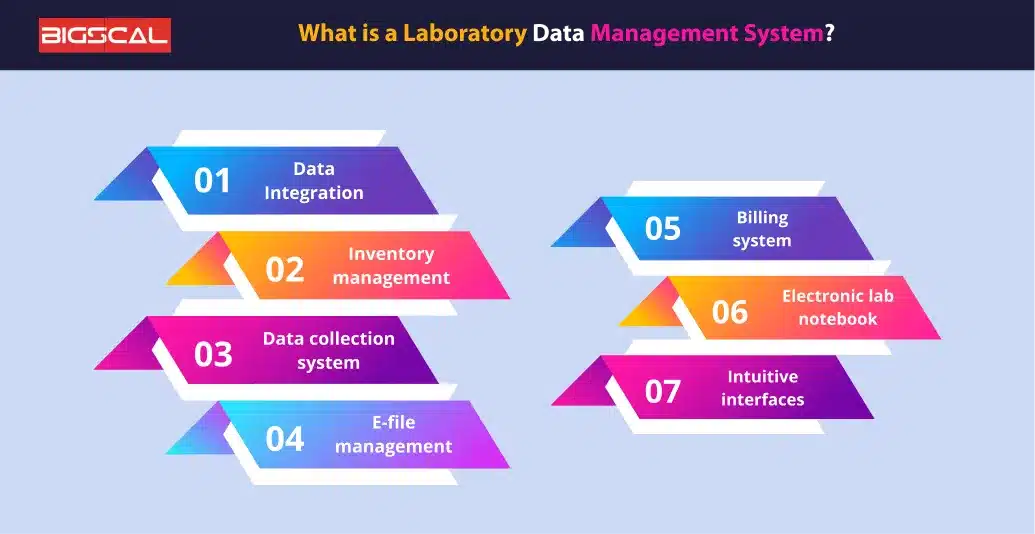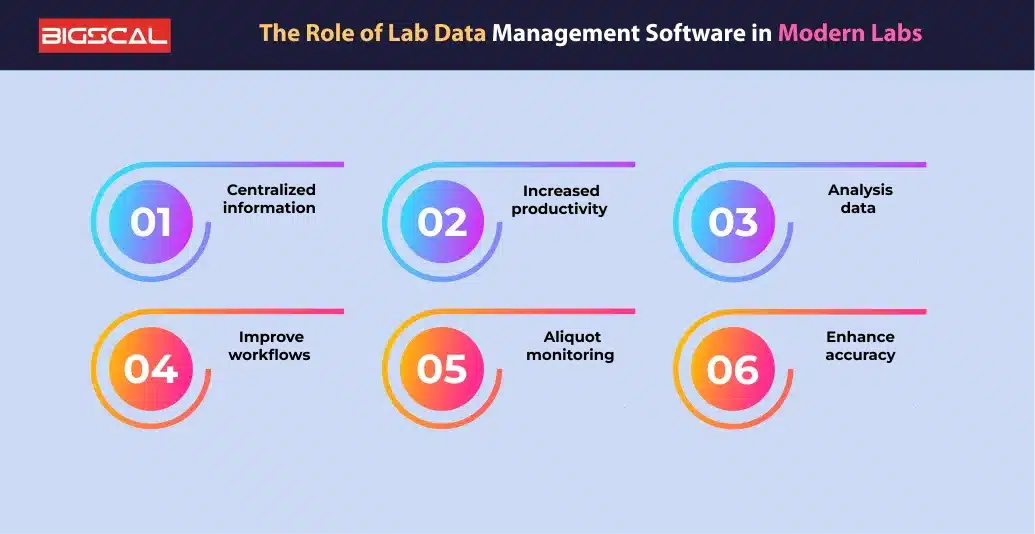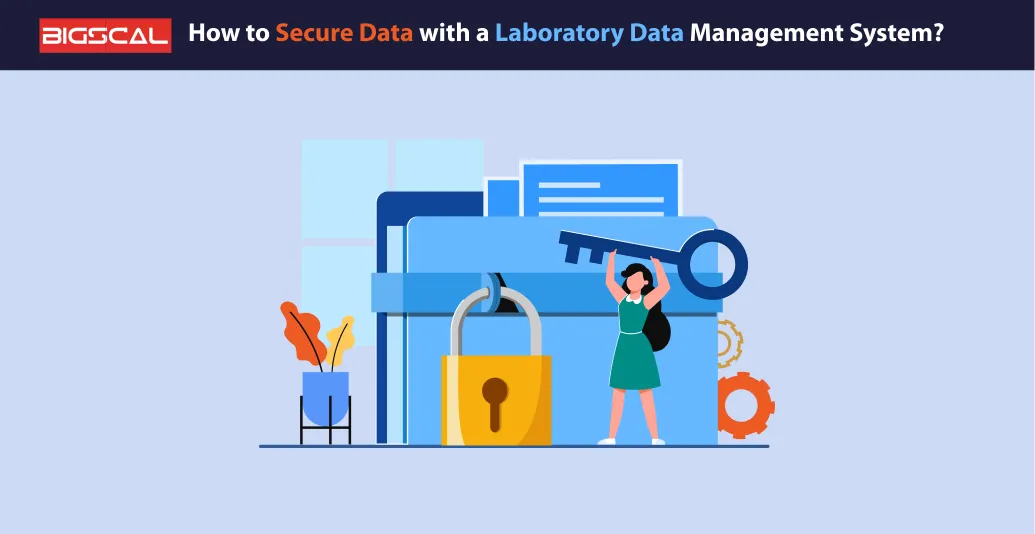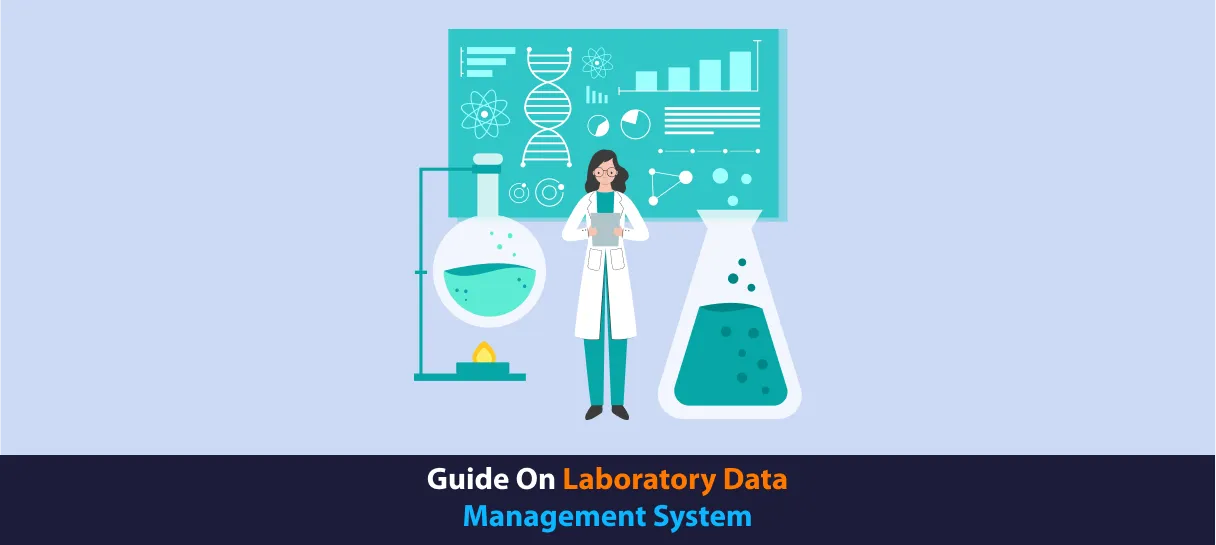An Extensive Guide On Laboratory Data Management System
Quick Summary: The main goal of the laboratory is to improve data quality for precise lab decisions, speed up the process and preserve time on escalating patient care. There are various barriers to accomplishing the desired objective. Furthermore, mostly barriers coming from inefficient data management and spending their most time on managing an abundance of files. Then, laboratory data management system, an ultimate lab solution to address this barrier.
Introduction
Accurate medical information is one of the keys for precise treatment and speedy recovery. Additionally, it helps to analyze the laboratory condition and make decisive actions on time to mitigate adverse situations. Managing information is not a piece of cake, it requires various tactics to remove errors and create reliable information .
The laboratory data management system helps to administrate holistic lab information categorized into clear-cut format that can be readable by any lower staff and draw conclusions out of it. Furthermore, it can address various issues other than managing data such as creating automated business intelligence reports and maintaining splendid connections with interconnected medical systems.
What is a Laboratory Data Management System?

Now, let’s deeply comprehend the term and varied functionalities. The laboratory data management system is an e-lab platform that can supervise the multitude of laboratory tasks. Furthermore, it provides actionable insights that are perfectly analyzed by laboratory personnel. If we understand in depth, all laboratory resources and other means connected with the data. Through data, we can calibrate instruments and analyze one’s performance. Explore more functionalities of laboratory data management system are :
Data Integration
Gathered amasses details from varied departments and sources, which is helpful for making critical decisions, identifying human errors, and retrieving immense data at a time. Furthermore, several stages are included in the laboratory process, each of the step information incorporated in the LIMS software. Therefore, data integrity simplifies the clinical work process and tracking each step.
Inventory management
The laboratory data management system can hold extensive data that includes stock information, which can easily be monitored in each step process. Furthermore, the laboratory instruments are required to undergo a calibration process that improves the equipment quality. Advantages of inventory management are :
- Saves lab costs
- Maximize productivity
- Increase user-experience
- Fully utilized lab resources
- Increases profits.
Data collection system
The laboratory information management system has a magnificent procedure that can help to collect information, categorize data in user-friendly manner, and create diagrammatic reports for better understanding the situation. The benefits of data collection system are :
- Retain more clients
- Minimizes errors
- Increases accuracy
- Making wise decision
- Conducting experiments precisely.
E-file management
Manually tackling lots of files is too tough and time consuming. Moreover, the LIMS solution simplified laboratory activities and made a smooth complete life cycle. It reduces laboratory expenses on recruiting more workers, managing files, and procuring cabinets or other furniture for storage. Additionally, it saves time on retrieving lab information.
Billing system
The laboratory data management system compiles invoices with associated regulations and mitigates human error while creating billing templates. Furthermore, laboratory information management systems compute the final amount on the basis of their medical tests. We spot the lights on the benefits of invoicing system are :
- Calculate amount automatically
- Alleviates to track financial bills
- Payment slip deliver to patients
- Increase efficiency
- Improve billing process.
Electronic lab notebook
This is a marvelous notebook for laboratory researchers, lab managers, lab physicians, and operational staff. Furthermore, this digital notebook contains a wide range of information about researcher experiments, physician details, patient information, and equipment data. Additionally, the systems are integrated and collaborated among each other.
Intuitive interfaces
When the digital laboratory platform is easy-to-use and improves user experience, it will help in generating more income as they can deal with more patients than expected at the particular time. Additionally, it takes less time to train junior employees. Thanks to Healthray LIMS solution for developing the exact software that is needed by users and lab workers.
The Role of Lab Data Management Software in Modern Labs

In the fast-paced landscape, the laboratory data management software is essential to processing information and extracting actionable insights. Furthermore, this software prepares patient’s test reports and laboratory clinical documentation. We highlighted the major role of laboratory data management system :
Centralized information
The laboratory data management system helps to harmonize information and carrying out the tasks without a hitch. Furthermore, the centralized data reveals numerous facts and scrutinizes information very easily. Mitigates costs on detecting human flaws and finding any information. Additionally, it smoothly apply data governance guidelines. Mitigates costs on detecting human mistakes.
Increased productivity
When we discuss productivity, two words cross our mind. One is output and another is input. Furthermore, the input includes worker salary, recruitment costs, acquisition of inventories, and investment money on lab infrastructure. The output includes reducing turnover rate, minimizing downtime, saves enormous time, and increases efficiency.
Analysis data
Scrutinizing wide information is not rocket science. It takes your significant amount of time, huge efforts, and a lot of labor. Furthermore, the laboratory information management system aids to analyze laboratory information through implementing several steps such as :
- Assimilate data
- Apply guidelines
- Mitigates error
- Convert to concise reports
- Finally, smoothly analyze information.
Improve workflows
If you escalate your profits, you need to improve your workflows. Furthermore, the laboratory processes bifurcated into three broad categories. One of the, is pre-analytical that includes the process of before scrutinizing data such as sample management. Then comes analysis after combining data and generating reports. Last, post analysis includes creation of analytical reports and sending them to patients.
With laboratory data management software, the whole process has been done properly. Therefore, it aids to improve laboratory operations.
Aliquot monitoring
This requires a smooth specimen process that includes customer preparation, takes out the sample, storing in a place, and updated information of each step. However, the laboratory information management system fits perfectly into it. Once stepwise information has been updated, it is too easy to monitor samples. Consequently, it helps to find the old sample details in no time.
Enhance accuracy
Generally, precision is necessary in the medical or laboratory departments. As one negligence can create a huge risk on a patient’s life. Furthermore, laboratory information management systems can achieve precision in every step, whether it is related to managing data, creating reports, and drafting laboratory documents.
How to Secure Data with a Laboratory Data Management System?

Information security is one of the primary keys to gain customers’ faith and improve data quality. The laboratory information system software involves effective practices to secure vast information. Furthermore, the practices include encrypted information in which the information transmutes into code, replicates files stored in the folder, and integrates strong credentials.
Furthermore, receiving messages and alerts instantly after signing the account from another device and also, included location information. It safeguards data, prevents risks from online attacks, and lowers expenses. The LIMS solution implemented these data protection principles in a most effective manner. Therefore, it increases information credibility and enhances information accuracy.
Conclusion
After comprehending lab troubles, the laboratory data management system has been developed to smoothly tackle them. Moreover, the key features of advanced lab software are data integration, inventory management system, e-file management, intuitive interface, and billing system. Furthermore, the laboratory assists to centralize information, increase productivity, analysis data, improve workflows, aliquot monitoring, and enhance accuracy. Additionally, it safeguards data by implementing best practices.
FAQ
What is a laboratory data management system?
Laboratory data management system is the e-lab platform that supervises lab information, monitoring samples, smoothly calibrating instruments, and analyzing any scenarios effortlessly. It protects laboratory data with implemented optimal practices. Therefore, it improves the complete life-cycle of laboratories and enhances patient care.
What are the main advantages of lab metadata?
The metadata can consider as raw data that comes at the time of patient registration, scheduling appointment, testing sample information, and instrument details. Furthermore, this information helps to prepare well-defined reports and formulating precise test results. Also, it assists to deliver other healthcare physicians at any time.
Is a sample tracking system essential for modern labs?
Indeed, a sample tracking system is essential for modern labs. Laboratory information management system comprises valuable features that improves overall workflow. Furthermore, this software assists to collect and update sample information appropriately. Consequently, it helps to monitor samples effortlessly.
What are the key benefits of a laboratory automation system?
Laboratory automation systems speedily capture extensive details, categorize it well, and extract the best information from it. Furthermore, the system includes sample processing, lab instrumentation system, formulate laboratory test reports, and collect medical payments from any digital method. Most importantly, reports and payment have been received from any location.
How does lab data management software save time?
Laboratory data management software comprises extensive functionalities that increase efficiency, maximize production level, and intensifies patient care. Furthermore, laboratory information management systems save time as information entered automatically, reduces mistakes, calibrating lab instruments in a short while, and collecting payment in a small amount of time.
What is the significance of laboratory data management software in lab organization?
The laboratory data management software is needed to refine infrastructure, creating more space in labs, increasing workflows efficiency, and improving patient care. Furthermore, the embedded tools are data collection system, instrumentation management, regulatory compliance, and reports. Additionally, it increases collaboration among medical stakeholders.
Does lab management software include a digital invoicing system?
Indeed, lab management software includes a digital invoicing system. Furthermore, it helps to receive more and collect all billing templates in a short while. Additionally, provide access to bills to other physicians.
What are the ways to minimize laboratory errors?
Laboratory errors are common, if it’s done by human beings. Furthermore, the lab processes are too wide and needed a lab management software to smoothly carry out each lab activity. Additionally, the employees are more attentive while entering details and delegating tasks.
What is e-file management?
Electronic file management is the record keeping in the digital version that is accessible to every person with the major consent of lab managers. Furthermore, this management system is totally the reverse system from the paper record system. It keeps information in an accurate methodical format and can prepare automated reports.
Do lab regulatory standards are practiced by the LIMS solution?
Indeed, lab regulatory standards are practiced by laboratory information management system solutions. This software implements safety protocols on executing activities and on administering information. Furthermore, the major regulatory practices such as lab data in the coding format, embedded powerful credentials, and supervising while transferring lab files.





